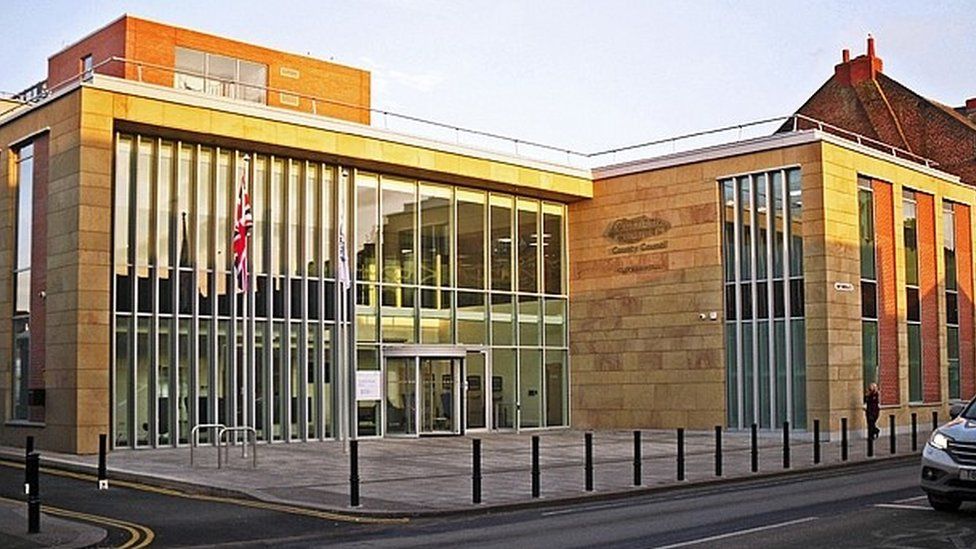Cumbria councils to be replaced by two authorities
- Published

The move will see Cumbria County Council and the six district councils scrapped
An overhaul of local government in Cumbria will see two new unitary councils replace the current system.
The east of the county will have one authority for Barrow, Eden and South Lakeland, while the west will encompass Allerdale, Carlisle and Copeland.
Some residents support the change but others are unhappy with how the new authorities have been grouped together.
Alice Bondi, from Alston, near the Northumberland border, said it would "make life exceedingly difficult".
It was "utterly absurd" that Alston was being grouped with Barrow, which is nearly 90 miles away and on the other side of Cumbria, and not Carlisle, which is 30 miles away, she said.
"It might as well be on another planet," she said.
Retired Barrow Borough Council officer Eddie Payne said the change might "bring things a bit nearer to Barrow".
"People won't think that it's all happening in Carlisle, which I'm sure a lot do at the moment," he said.
But this would depend on services being based across different parts of the new authority area, and not in one headquarters, he said.
The county would be split on a largely east-west basis
The last time local government was reorganised in Cumbria was in 1974.
The latest change follows a consultation involving the public, businesses and local authorities and groups, which were asked to consider four different proposals.
Robert Jenrick MP, the local government secretary, said it would provide better value for money and improved services.
"I have always been clear that any restructuring of local government must be locally led and will not involve top-down solutions from government," he said.
Copeland's Conservative elected mayor, Mike Starkie, said the move would bring "economies of scale, it's going to bring savings" as seven of each department, such as environmental health, is reduced to two, he said.
"This is probably the best thing that's happened in local government [in Cumbria] since the 70s," he said.
"I can only see it taking Cumbria at pace into the 21st Century and putting us at the top table and seeing some of the benefits that have come to the other combined authority areas."
District councils in Cumbria are responsible for rubbish collection, housing and planning
In much of England, a two-tier system involves county councils providing education, social services and waste disposal with district councils responsible for rubbish collection, housing and planning.
In areas governed by unitary authorities there is a single body which provide all local government services.
Carlisle City Council's Conservative leader John Mallinson said two unitary councils was "the optimum balance between local government being close to the communities it serves, but also having the resources and influence to drive positive change".
Eden District Council's Liberal Democrat leader, Virginia Taylor, said it would "improve existing services while developing new ones - and retain and deliver local services locally".
Plans for the East Cumbria and West Cumbria authorities still need to be passed by Parliament and elections will then take place for councillors.
A proposal for a single unitary council for the whole of Cumbria did meet the criteria, but the two new councils were preferred due to the size of the county, external.
Follow BBC North East & Cumbria on Twitter, external, Facebook, external and Instagram, external. Send your story ideas to northeastandcumbria@bbc.co.uk, external.
- Published9 December 2020
- Published1 September 2020
- Published28 August 2020
- Published21 December 2018